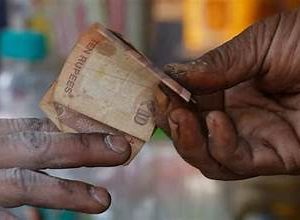By Administrator_India
The Reserve Bank of India (RBI) on Thursday said it has cancelled the licence of United Co-operative Bank Ltd, Bagnan in West Bengal due to poor financial condition. However, all the depositors will receive full amount of their deposits from Deposit Insurance and Credit Guarantee Corporation (DICGC), the RBI said.
“Consequently, the bank ceases to carry on banking business, with effect from the close of business on May 13, 2021. The Registrar of Cooperative Societies, West Bengal has also been requested to issue an order for winding up the bank and appoint a liquidator for the bank,” the RBI said in a statement.
The Reserve Bank cancelled the licence of the bank as the bank does not have adequate capital and earning prospects. “As such, it does not comply with the provisions of section 11(1) and section 22 (3) (d) read with section 56 of the Banking Regulation Act, 1949,” the RBI said.
The continuance of the bank is prejudicial to the interests of its depositors and the bank with its present financial position would be unable to pay its present depositors in full, the RBI said.
Public interest would be adversely affected if the bank is allowed to carry on its banking business any further, the RBI said.
Consequent to the cancellation of its licence, United Co-operative Bank Ltd., Bagnan, West Bengal is prohibited from conducting the business of ‘banking’ which includes acceptance of deposits and repayment of deposits with immediate effect, the RBI said.
What next?
With the cancellation of licence and commencement of liquidation proceedings, the process of paying the depositors of United Co-operative Bank Ltd., Bagnan, West Bengal as per the DICGC Act, 1961 will be set in motion, the RBI said.
“As per the data submitted by the bank, all the depositors will receive full amount of their deposits from Deposit Insurance and Credit Guarantee Corporation (DICGC),” the RBI said.
On liquidation, every depositor would be entitled to receive deposit insurance claim amount in respect of his/her deposits up to a monetary ceiling of Rs 5 lakh from the DICGC subject to the provisions of the DICGC Act, 1961, the RBI said.
On May 11, the RBI imposed monetary penalty on two Maharashtra-based co-operative banks– Siddheshwar Sahakari Bank, Latur and Shankar Nagari Sahakari Bank Limited.
The regulator slapped a monetary penalty of Rs 3.50 lakh on Siddheshwar Sahakari Bank for non-compliance with the directions issued by RBI to Urban Cooperative Banks on exposure norms and income recognition and asset classification norms.
Also, the RBI imposed a fine of Rs one lakh penalty on Shankar Nagari Bank for similar rule violations. The RBI imposed penalties based on inspection reports of these banks and after issuing show cause notices, the RBI said.
RBI clampdown
The RBI has clamped down on several co-operative banks in the recent years for rule violations or citing deterioration in financials. On April 22, the RBI cancelled the licence of Maharashtra-based Bhagyodaya Friends Urban Co-operative Bank Limited due to inadequate capital.
In February, the RBI Imposed a withdrawal limit of Rs 1,000 per borrower on customers of Deccan Urban Co-operative Bank for a period of six months ‘considering the bank’s current liquidity position’.
This was the second major instance of major RBI action on co-operative banks this year. In the case of Deccan bank, the regulator specified that the punitive measures should not be ‘construed’ as cancellation of the banking licence by RBI, while also stating that 99.58 percent of the depositors are fully covered by the Deposit Insurance scheme.
In the recent past, the central bank had cancelled the licences of four co-operative banks. These are Vasantdada Nagari Sahakari Bank, Karad Janata Sahakari Bank, CKP Co-operative Bank and the Mapusa Urban Co-operative Bank of Goa.





